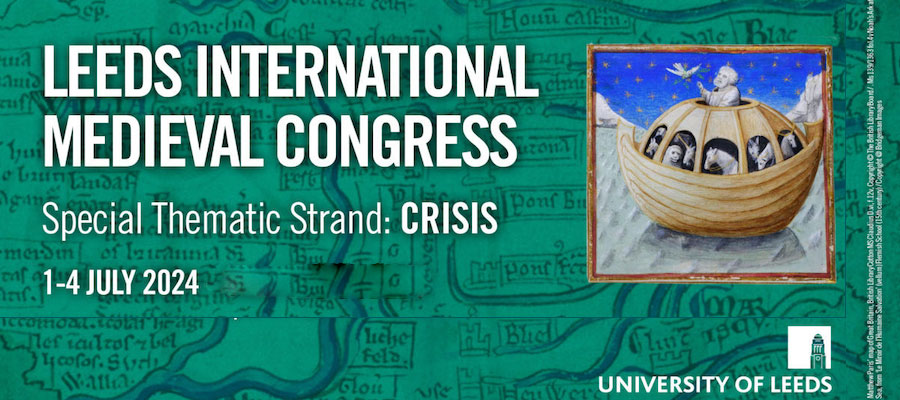Getting It Wrong in Late Antiquity, Postgraduate and Early Career Late Antiquity Network (LAN) panels at the 2024 International Medieval Congress, University of Leeds, July 1–4, 2024
The theme of next year’s IMC is ‘crisis’ - a word that is often recurrent in scholarship about the late antique world. Crisis itself is also usually associated with ideas of mistakes and failure, but how did late antique individuals and societies deal with being or doing wrong? Many late antique communities saw a fundamental wrongness in themselves and their world stemming from the Fall of Man and the coming apocalypse. This strand seeks to investigate how, and how far, ideas of wrongness shaped late antique societies. In a world irretrievably ribboned with error, what types of wrongness did late ancient people seek to correct, and why? How did people go about detecting wrongness in themselves, each other, and their environments? How far did they believe the eradication of wrongness from their world was a possible – or even a desirable – goal?
We invite postgraduate and early career researchers from a variety of backgrounds to discuss wrongness in late antiquity across a series of panels. The Late Antiquity Network was founded in 2012 to provide a platform for junior scholars working on a range of geographical and disciplinary areas within the period. We have held a number of workshops and conferences that aim to provide opportunities for junior researchers to present their research and build connections with others in the field and to discuss their work in a constructive environment. The participants in these panels are strongly encouraged to interpret wrongness in late antiquity within the context of their research interests. Applications from masters students, those in the early stages of their PhD, and those without a current institutional affiliation are particularly encouraged. Papers should be no more than 20 minutes, leaving 10 minutes for discussion and question time.
Suggested areas for discussion include, but are not limited to:
- Ideas about progress, apocalypse, and systems collapse
- Wrongness and the fall of the Roman empire
- Stories of notable mistakes in literature
- Taxonomies of wrongdoing and strategies for redress: classification of criminal acts, composition of law codes, trials, acquittal, torture, punishment
- Theories of disability and physical difference (especially scholarly approaches informed by Queer Theory and Critical Disability Studies)
- Social and sexual deviants
- Religious wrongness: heresiology, doubt, conversion, confession; theological ideas of in/fallibility; public displays of wrongness (penance, renunciation of former beliefs and associates, shame culture)
- Error in the material record; spoliation, repair, abandonment
- Speaking and writing incorrectly in ancient education: literary models, genres, rhetoric
- Wrongness in nature: extreme weather events and their interpretation; monsters, omens, marvels and miracles which rely on the transgression of natural laws
- Mistakes and blame at government/state level: historical narratives surrounding defeat and failure, elite blame culture, political scapegoats, damnatio memoriae, and the ‘righting’ of wrongs by political successors
